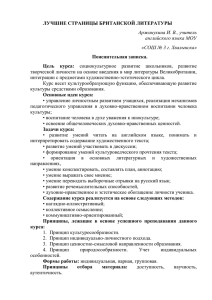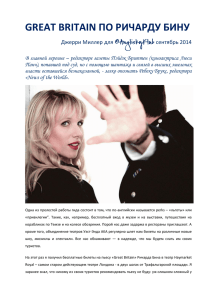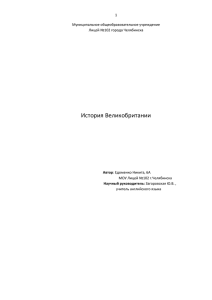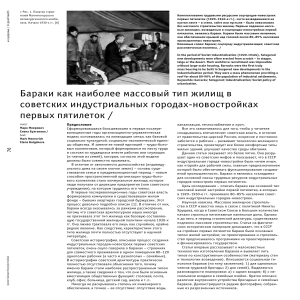Some historical facts about Great Britain. The
advertisement
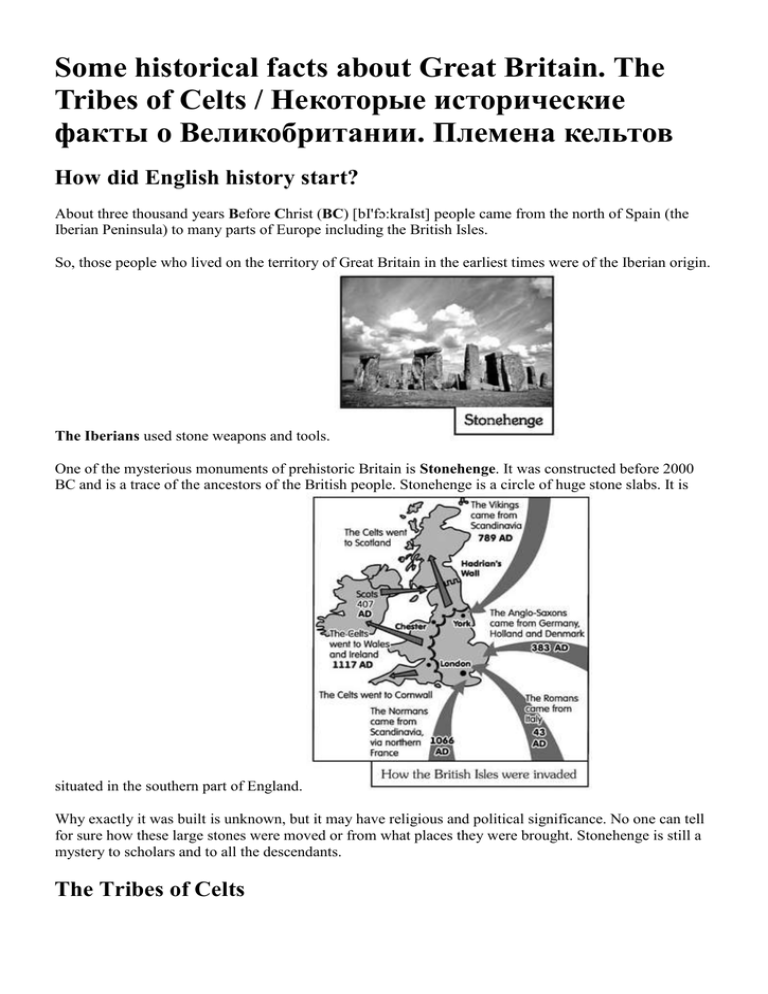
Some historical facts about Great Britain. The Tribes of Celts / Некоторые исторические факты о Великобритании. Племена кельтов How did English history start? About three thousand years Before Christ (BC) [bI'fɔ:kraIst] people came from the north of Spain (the Iberian Peninsula) to many parts of Europe including the British Isles. So, those people who lived on the territory of Great Britain in the earliest times were of the Iberian origin. The Iberians used stone weapons and tools. One of the mysterious monuments of prehistoric Britain is Stonehenge. It was constructed before 2000 BC and is a trace of the ancestors of the British people. Stonehenge is a circle of huge stone slabs. It is situated in the southern part of England. Why exactly it was built is unknown, but it may have religious and political significance. No one can tell for sure how these large stones were moved or from what places they were brought. Stonehenge is still a mystery to scholars and to all the descendants. The Tribes of Celts In the 7th century BC the Iberians faced a great problem because the British Isles were invaded by the Celts. The Celts may originally have come from eastern and central Europe. Celtic people lived in tribes. Each tribe was ruled by its own queen or king who represented a warrior class. The priests, called druids, were important members of Celtic tribes. These druids could not read or write but they memorized all the religious teaching, the tribal laws, history, medicine and natural philosophy. According to the Romans, the Celtic men wore shirts and bridges and striped or checked cloak fastened by a pin. It is possible that the Scottish tartan and dress developed from this type of cloak. Celtic tribes were represented by the Picts, the Scots and the Britons. The Picts settled in the mountains in the North. Some Picts and several tribes of the Scots settled in Ireland. But later the Scots decided to return from Ireland to the larger island of present-day Great Britain. They chose its northern part. Now this part is called Scotland. The Britons were the most powerful of all the Celtic tribes and they occupied most of the country including island’s southern half. It was named Britain after them. The Britons chose land for living along the rivers or near the coasts of the sea. What they did was fishing, growing wheat and breeding sheep in the meadows. The Iberians were weak compared to the Celts. They could not fight back because the Celts were wellarmed with metal spears, swords [sɔ:dz] and axes. Hardly anything is left of the Celtic languages except for the names of some rivers — the Thames, the Mersey, the Severn and the Avon and two large cities — London and Leeds. Before Christ (BC) [bI'fɔ kraIst] — лат. "до рождества Христова" (до нашей эры) the Iberians [aI'bIərIənz] — иберийцы — древнейшее население Британских островов (выходцы из Испании) Stonehenge — Стоунхендж (древнейший памятник из каменных глыб; находится на территории южной Англии) the Celts — кельты (древние племена — первые завоеватели Британских островов) the Picts — пикты (кельтские племена) the Scots — скотты (кельтские племена) the Britons — бритты (кельтские племена) Julius Caesar ['ʤu:ljəs 'sizə] — Юлий Цезарь the Romans — римляне (завоевали Британию в I в. н. э.) Anno Domini (AD) ['ænəu 'dɔmInaI] — лат. "веЫка Господня" (нашей эры) Hadrian’s ['heIdrIənz] Wall — стена Адриана (римского императора) the Angles — англы (германские племена) the Saxons — саксы (германские племена) the Jutes [ʤu:ts] — юты (германские племена) heptarchy ['hepta:kI] — Гептархия (Семь королевств); англо-саксонские королевства, существовавшие с конца VI по конец VIII в. the Danes — датчане (завоевали Британию в VIII в. н. э.) the Vikings ['vaIkIŋz] — викинги (выходцы из северной Европы, в основном Скандинавии; в VIII–X вв. пытались завоевать Британию) the Normans — норманны (вторглись в Англию в XI в.) — выходцы из северной Франции the Battle of Hastings — битва при Гастингсе, которая принесла победу норманнам в 1066 г. William the Conqueror (Duke of Normandy) — Вильгельм Завоеватель (герцог Нормандии); после битвы при Гастингсе стал королем Англии Robin Hood — Робин Гуд, легендарный герой английского народа shire ['shaIə] — от франц. графство (входит в состав слов, означающих названия многих английских графств) doomsday ['du:mzdeI] — религиозный термин день страшного суда the Domesday Book ['du:mzdeI 'buk] — букв. книга страшного суда (земельная опись Англии 1086 г.) the Great Charter — Великая Хартия (исторический документ, в котором в 1215 г. были записаны права англичан в период нормандского завоевания) the Hundred Years’ War — Столетняя война (1337–1453), длительная война между Англией и Францией Wat Tyler ['wɔt 'taIlə] — Уот Тайлер (возглавлял крестьянское восстание в 1381 г.) the War of the Roses — Война Алой и Белой роз (1455–1485), война между Ланкастерской и Йоркской династиями the Tudor Dynasty — династия Тюдоров (1485–1603) the Stuart Dynasty — династия Стюартов (1603–1649) the Bubonic Plague ['pleIg] — бубонная чума (эпидемия чумы, разразившаяся в Лондоне в 1665 г.) the Great Fire of London — Великий лондонский пожар, в результате которого в 1666 г. выгорел Лондон Sir Christopher Wren ['krIstəfə 'ren] — сэр Кристофер Рен (известный английский архитектор) Oliver Cromwell — Оливер Кромвель, герой английской буржуазной революции (возглавлял борьбу Парламента против Чарльза I из династии Стюартов) "People’s Charter" — "Народная Хартия" (исторический документ XIX в., в котором были сформулированы требования рабочих) Chartism — Чартизм (политическое движение рабочего класса Британии в XIX в.) the Georgian period (1714–1830) — Георгианский период (период правления королей Георга I, II, III, IV) the Victorian period (1837–1901) — Викторианский период (период правления королевы Виктории) the Commonwealth ['kɔmənwəlθ] of Nations — Содружество Наций (политическое и экономическое объединение 49-ти независимых государств, центром которого является Великобритания) Elizabeth II [I'lIzəbəθ] — Елизавета II (королева Великобритании с 1952 г.)
